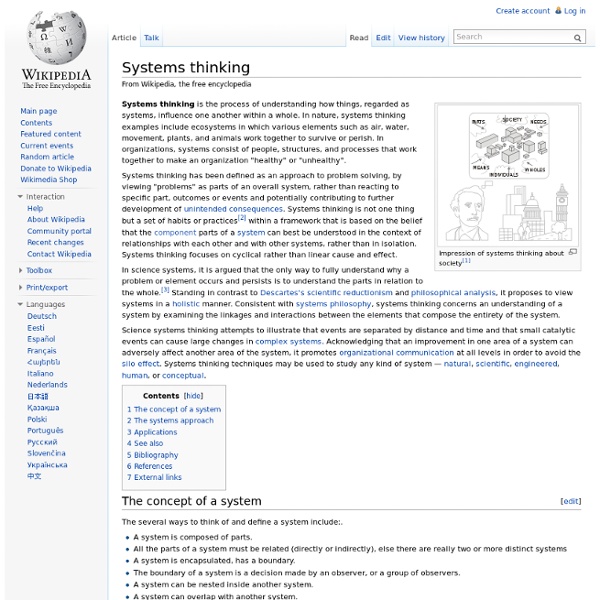Systems thinking

BBC Systems Practice - Resources
Copyrighted image Credit: The Open University Open2.net fades away... For ten years, give or take, Open2.net was the online home of Open University and BBC programming. Over the last few months, though, we've been moving into OpenLearn, creating one home for all The Open University's free learning content. It means we share a home with the Open University's iTunesU and YouTube channels, and much more besides. You can use the navigation at the top of this page to explore what we have on offer. There's lots to do - you could watch Evan Davis exploring the state of British manufacturing7; explore the frozen planet8; get to know the science and history of the Olympics9 or have a look at our free courses. Most of the content from Open2.net has been brought across; if you've landed here after typing or searching for an Open2.net URL then you're probably looking for something that fitted into one of these categories: Open2 forums We still want you to join in, comment and share your views.
Related:
Related:



